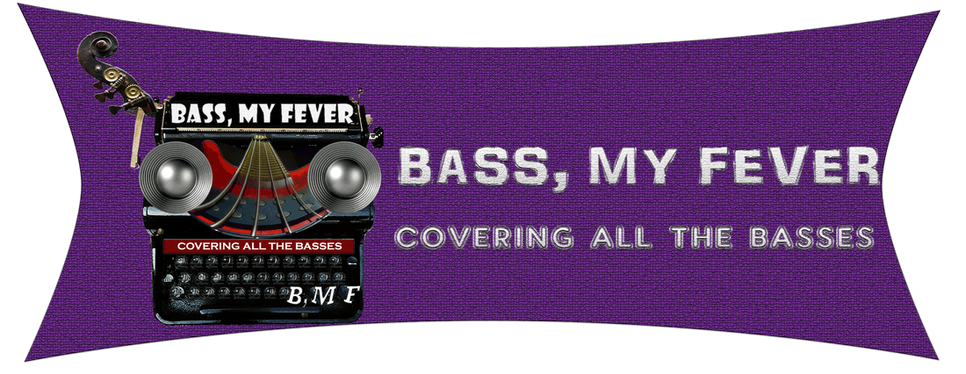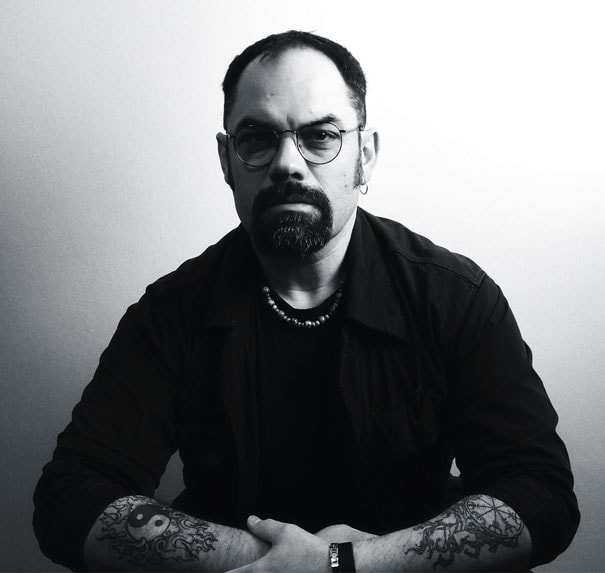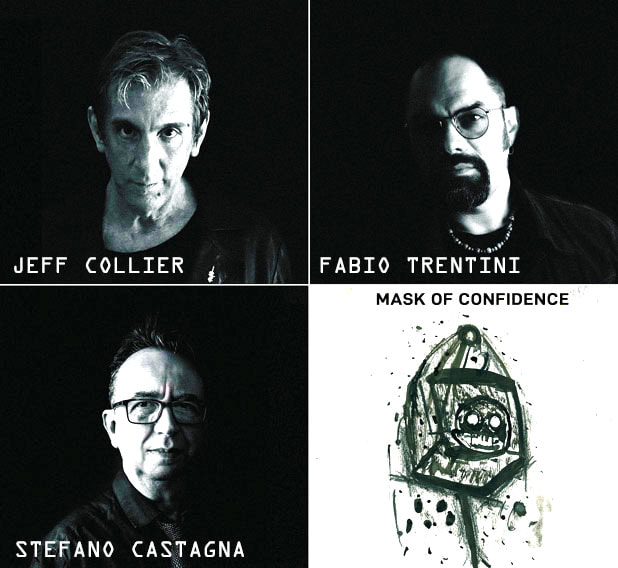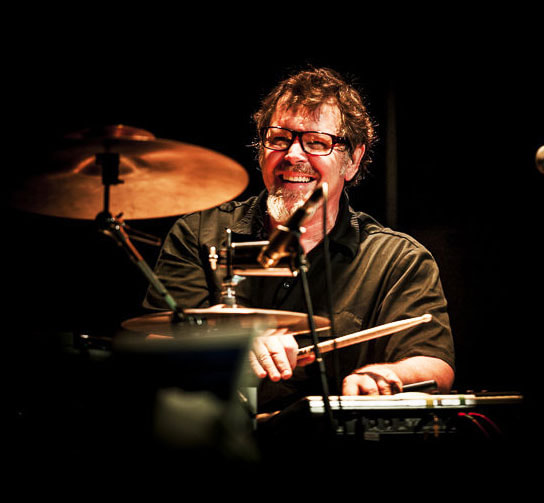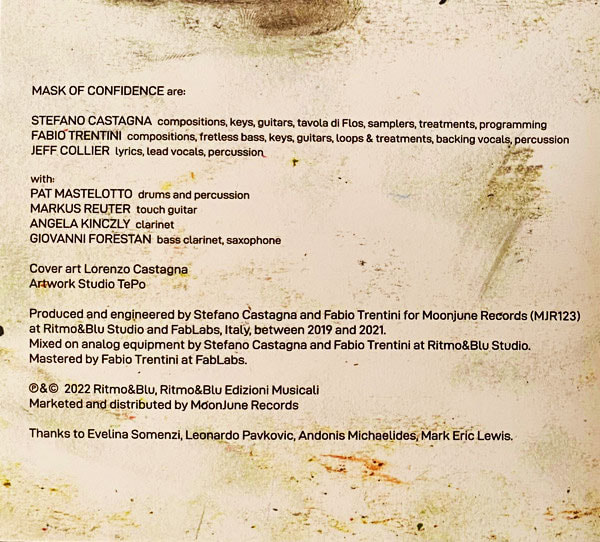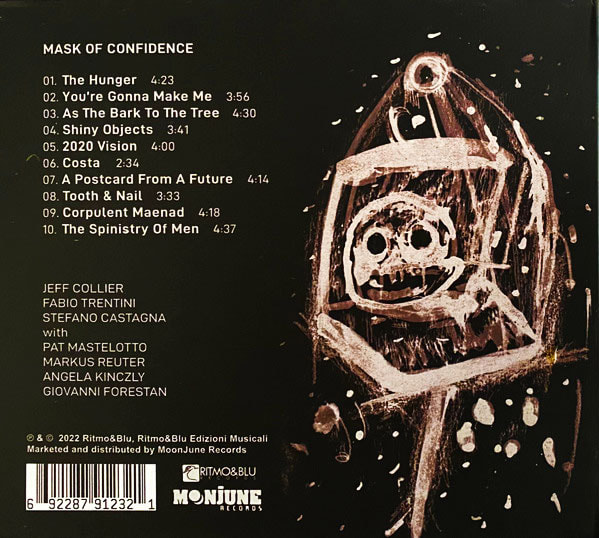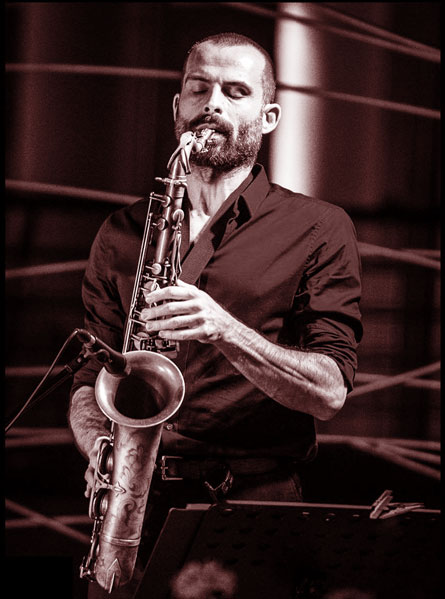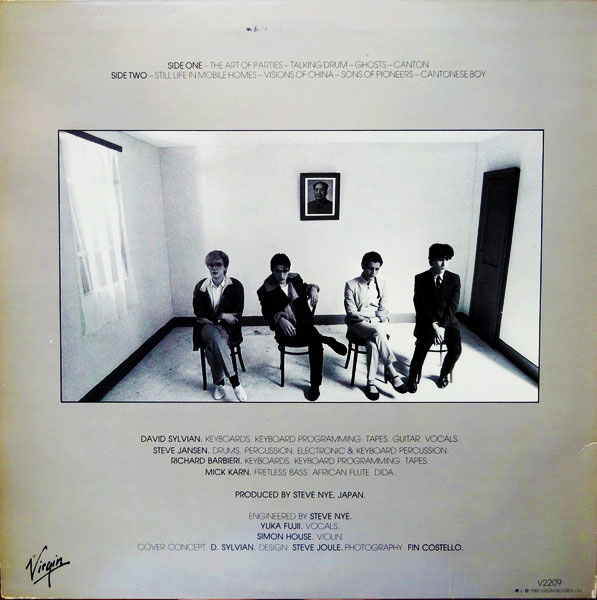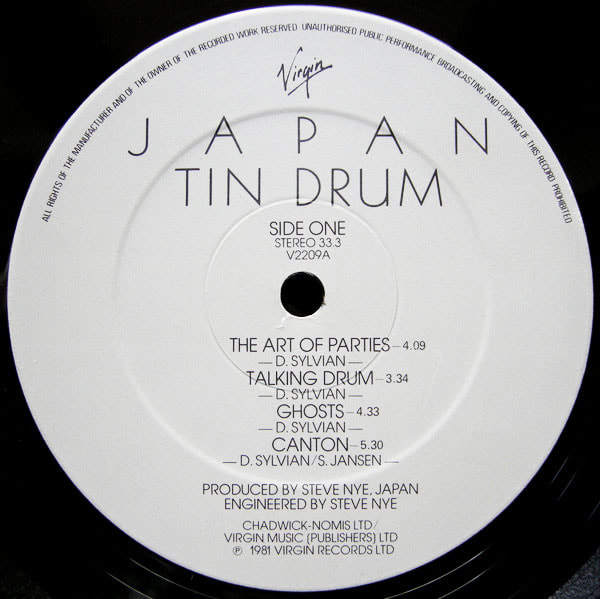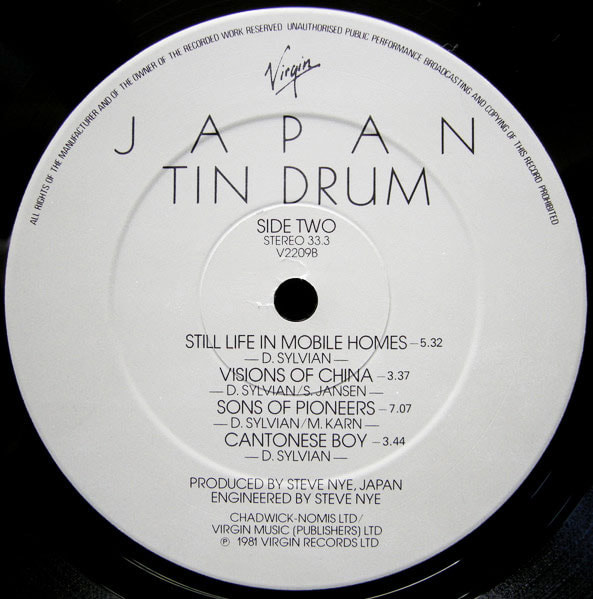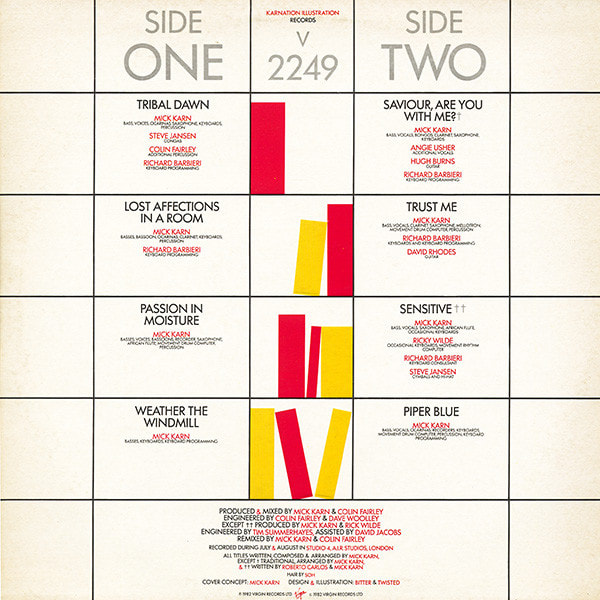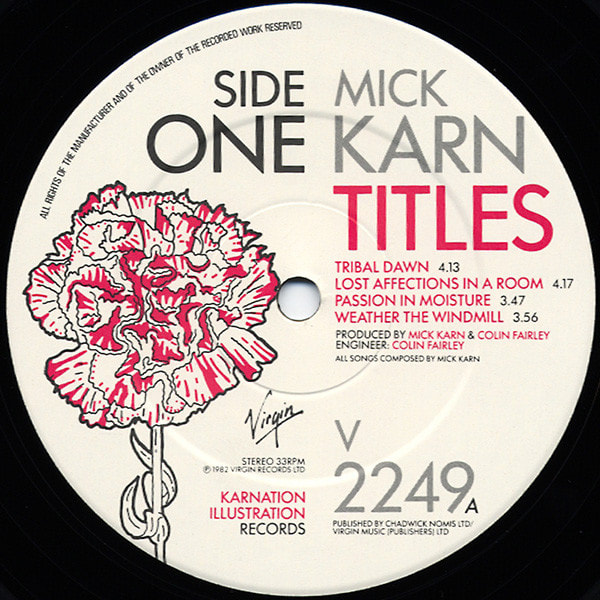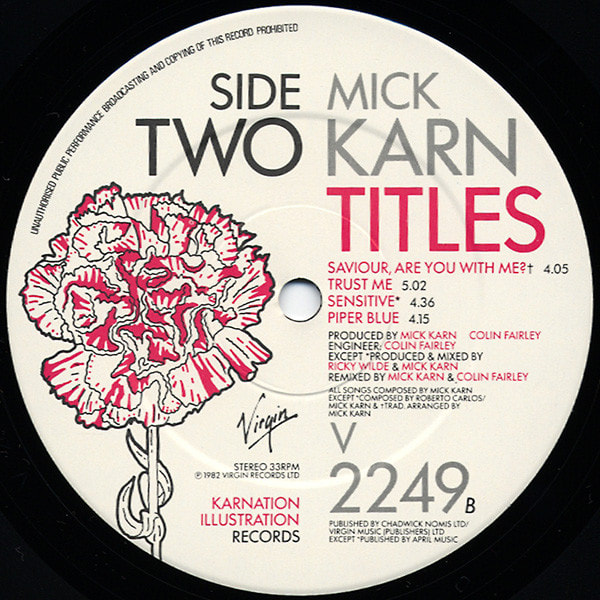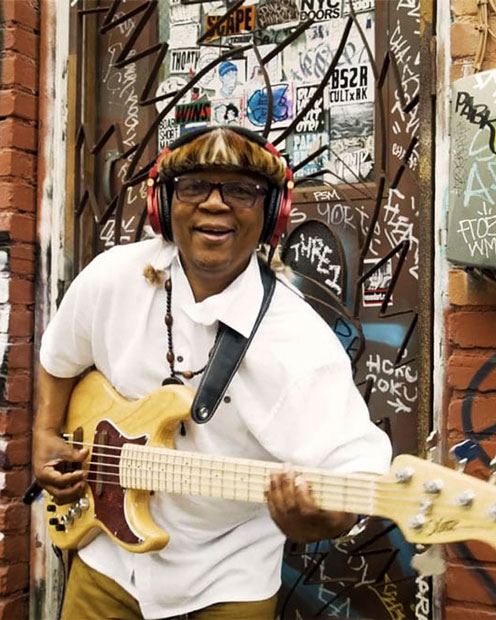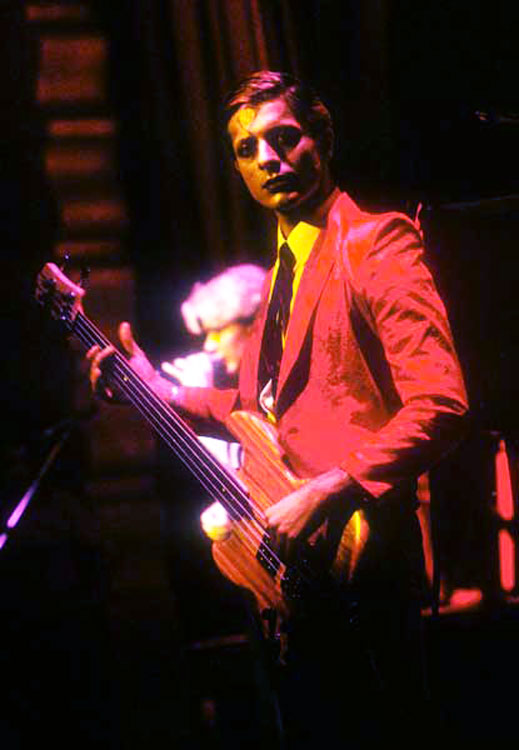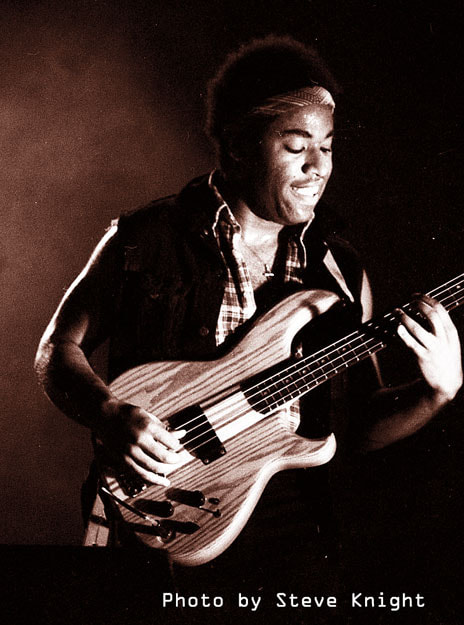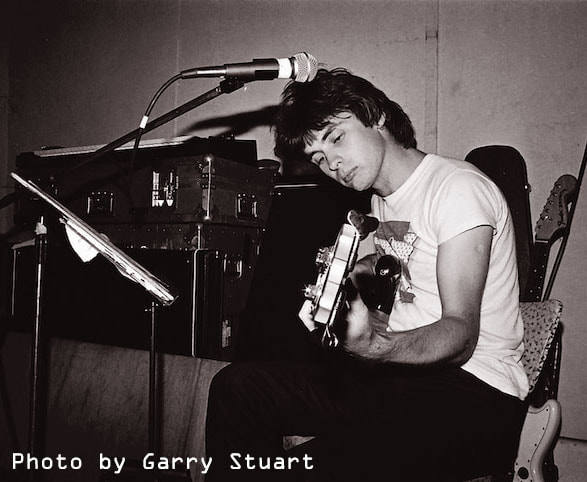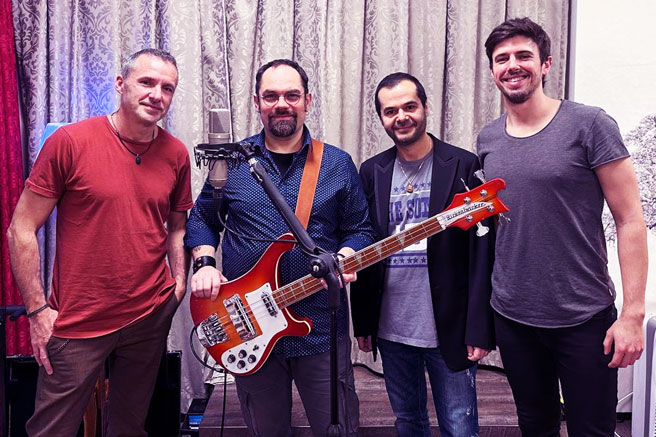ALBUM CONTEXT INTERVIEW WITH
FABIO TRENTINI
"MASK OF CONFIDENCE"
MOONJUNE RECORDS
2022
FABIO TRENTINI
"MASK OF CONFIDENCE"
MOONJUNE RECORDS
2022
|
«L’idea di “Mask Of Confidence” nasce dalla grande passione per la musica di Mick Karn che ho in comune con il mio “alter ego” in seno al progetto, Stefano Castagna[...] Una volta Stefano mi sentì imitare Mick Karn col basso fretless e lanciò l’idea di fare un disco di composizioni originali ispirandosi alla musica di Karn, proposta che mi entusiasmò dal primo istante» .... «The idea for “Mask Of Confidence” stems from the great passion I have for Mick Karn's music that I share with my “alter ego” in the project, Stefano Castagna [...] Once Stefano heard me imitating Mick Karn with the fretless bass and launched the idea of making a record of original compositions inspired by Karn's music, a proposal that excited me from the first moment» |
|
Fabio Trentini, musicista, produttore discografico e ingegnere del suono, è il fulcro sonoro indubitabile di questo Mask Of Confidence, progetto sofisticato condiviso con il compositore e produttore Stefano Castagna e il batterista/cantante Jeff Collier. Il basso fretless di Trentini è il conduttore armonico e prima base di quello che i Mask Of Confidence dispensano nel loro disco d’esordio, ovverossia una musica fluida, intensa ed emotiva che si ispira (mantenendo intatta una cifra originale) all’attività solista di quel genio bassistico che risponde al nome di Mick Karn. A rinforzare la vicinanza con la musica di Karn ci pensano i diversi interventi al clarinetto di Angela Kinczly e Giovanni Forestan, uno strumento che è ricorso spesso nel ciclo solista di Mick e anche nei Rain Tree Crow e nel trio JBK con Jansen e Barbieri; uno strumento, il clarinetto, che sovente ha associazioni con il basso elettrico (in un contesto completamente differente potremmo citare Marcus Miller). |
Fabio Trentini, musician, record producer and sound engineer, is the unquestionable sonic focus of this Mask Of Confidence, a sophisticated project shared with composer and producer Stefano Castagna and drummer/singer Jeff Collier. Trentini's fretless bass is the harmonic conductor and first base of what Mask Of Confidence dispense in their debut album, namely fluid, intense and emotive music inspired by (while maintaining an original figure) the solo activity of that bass genius answering to the name of Mick Karn. To reinforce the affinity with Karn's music there are the various contributions of Angela Kinczly and Giovanni Forestan on the clarinet, an instrument that is often used in Mick's solo cycle and also in Rain Tree Crow and in the JBK trio with Jansen and Barbieri; an instrument, the clarinet, that often has associations with the electric bass (in a completely different context we could mention Marcus Miller). |
|
Le linee stranianti, gonfie e debordanti del basso fretless trasportano l’ascoltatore verso territori rarefatti che certo fanno pensare al mondo Japan, ma l’atmosfera è anche pervasa da uno spirito creativo crimsoniano, come testimoniato da due ospiti di grande calibro come Markus Reuter e Pat Mastellotto. I Mask Of Confidence usano con grande intelligenza il “Karn effect” che fa parte della genesi del progetto, rendendo appunto il basso fretless il core melodico di un fluire ininterrotto di suggestioni appassionate, laddove il basso non stanca mai e l’elettronica è di gran classe, mentre la prova vocale di Collier è originale e intensa senza esondare in territori sylvianeschi. |
The estranging, swelling and overflowing lines of the fretless bass transport the listener to rarefied territories that certainly make you think of Japan, but the atmosphere is also pervaded by a Crimsonian creative spirit, as witnessed by two high-calibre guests such as Markus Reuter and Pat Mastellotto. Mask Of Confidence use with great intelligence the "Karn effect" that is part of the genesis of the project, making the fretless bass the melodic core of an uninterrupted flow of passionate suggestions, where the bass never tires and the electronics are of great class, while Collier's vocal performance is original and intense without overflowing into Sylvian territories. |
|
La qualità dell’intera opera è molto alta, le nostre preferenze vanno all’ipnotica “You’re Gonna Make Me”, alle splendide “Shiny Objects” e “2020 Vision”, mentre in “Tooth&Nail” i riferimenti a King Crimson e Adrian Belew sono di grande fascino. “Corpulent Maened” è percorsa da un sontuoso giro di basso che non avrebbe certo sfigurato in The Tooth Mother o Bestial Cluster di Mick Karn; ma, ci teniamo a ripeterlo, Fabio Trentini è sé stesso, con la sua cifra e il suo stile, sotto l’influenza di uno dei più scintillanti dei nostri grandi amori, appunto Mick, un bassista capace di portare lo strumento a livelli espressivi inauditi senza mai abusare di sterile virtuosismo. Karn aveva la “visione”, era scultore e scolpiva anche il suono; Fabio Trentini dimostra qui di aver fatto all’epoca tesoro di basi così preziose e di averle portate nel suo bagaglio di bassista, polistrumentista e produttore. Naturalmente, confidiamo nella continuazione di questo prezioso progetto e aspettiamo con partecipazione il secondo capitolo. Abbiamo rivolto a Fabio Trentini, che ringraziamo per la gentilezza e la disponibilità, alcune domande sulla nascita di Mask Of Confidence e non solo. |
The quality of the entire work is very high, our favourites going to the hypnotic 'You're Gonna Make Me', the splendid 'Shiny Objects' and '2020 Vision', while in 'Tooth&Nail' the references to King Crimson and Adrian Belew are of great charm. "Corpulent Maened" has a sumptuous bass line that would not have sounded out of place in Mick Karn's The Tooth Mother or Bestial Cluster. But, we want to emphasise it, Fabio Trentini is himself, with his own signature and style, under the influence of one of the most scintillating of our great loves, Mick, a bass player capable of taking the instrument to unprecedented levels of expression without ever abusing sterile virtuosity. Karn had the 'vision', he was a sculptor, and he also sculpted the sound; Fabio Trentini shows here that he treasured such precious basics and brought them into his baggage as a bassist, multi-instrumentalist and producer. Naturally, we trust in the perpetuation of this valuable project and look forward to the second chapter. We asked Fabio Trentini, whom we thank for his kindness and availability, a few questions about the birth of Mask Of Confidence and much more. |
|
BMF: Mask Of Confidence non è un vero e proprio canonico tributo a Mick Karn, ma è un’opera con una sua precisa cifra creativa, dichiaratamente debitrice alla sua figura e alla centralità del suo basso nella musica che ha percorso. Ci parleresti dell’idea originaria e del processo creativo? FABIO TRENTINI: L’idea di “Mask Of Confidence” nasce dalla grande passione per la musica di Mick Karn che ho in comune con il mio “alter ego” in seno al progetto, Stefano Castagna, un produttore di grande esperienza proprietario dello studio “Ritmo&Blu” nella zona del basso Garda. Una volta Stefano mi sentì imitare Mick Karn col basso fretless e lanciò l’idea di fare un disco di composizioni originali ispirandosi alla musica di Karn, proposta che mi entusiasmò dal primo istante. Il processo di composizione e produzione è durato qualche anno, Stefano ed io ci scambiavamo riffs e idee a distanza, poi, nell’inverno 2019/2020 , abbiamo deciso di dare un giro di vite alla cosa, così abbiamo iniziato a vederci in studio più spesso e a chiudere i primi pezzi. All’inizio non sapevamo bene se fare un disco di brani strumentali o cercare un vocalist di madre lingua adatto. Con l’arrivo di Jeff Collier (cantante, compositore e batterista statunitense con cui collaboro da più di 20 anni), il cerchio si è chiuso: la sua voce è assolutamente perfetta e anche i testi hanno preso forma in tempi molto brevi (era il 2020, tra il covid e la situazione esplosiva negli USA Jeff aveva molto da dire). La “ciliegina sulla torta” è stata poi la partecipazione di musicisti internazionali straordinari (oltre che ottimi amici) quali Markus Reuter (touch guitar), Pat Mastelotto (batteria), Angela Kinczly (clarinetto e cori) e Giovanni Forestan (clarinetto basso e sax). |
BMF: Mask Of Confidence is not really a canonical tribute to Mick Karn, but it is a work with its own distinct creative signature, openly indebted to his figure and to the centrality of his bass in the music he covered. Would you tell us about the original idea and the creative process? FABIO TRENTINI: The idea for “Mask Of Confidence” stems from the great passion I have for Mick Karn's music that I share with my “alter ego” in the project, Stefano Castagna, an experienced producer and owner of the “Ritmo&Blu” studio in the lower Garda area. Once Stefano heard me imitating Mick Karn with the fretless bass and launched the idea of making a record of original compositions inspired by Karn's music, a proposal that excited me from the first moment. The process of composition and production lasted a few years, Stefano and I exchanged riffs and ideas long-distance, then, in the winter of 2019/2020 , we decided to give the thing a go, so we started to see each other in the studio more often and close the first pieces. At first, we weren't sure whether to make a record of instrumental tracks or look for a suitable native speaker vocalist. With the arrival of Jeff Collier (an American singer, composer and drummer with whom I have been collaborating for more than 20 years), the circle came full circle: his voice is absolutely perfect and the lyrics also took shape very quickly (it was 2020, between covid and the explosive situation in the US Jeff had a lot to say). The "icing on the cake" was then the participation of extraordinary international musicians (as well as excellent friends) such as Markus Reuter (touch guitar), Pat Mastelotto (drums), Angela Kinczly (clarinet and backing vocals) and Giovanni Forestan (bass clarinet and sax). |
|
BMF: A proposito specificamente di Mick Karn, in quali contesti lo hai apprezzato maggiormente? Cosa pensi della sua carriera solista? Alcuni album come i primi “Dreams Of Reason Produce Monsters” e “Titles” forse sono stati trascurati dalla critica, al tempo… FT: Penso che Mick Karn sia stato il bassista che mi ha più affascinato ed impressionato in assoluto. Il mio primo contatto con la sua musica avvenne molto presto, avevo forse 15 anni, attraverso un amico musicista più vecchio di me. Mi innamorai di quel suono e di quell’approccio caratteristico all’istante e passai anni ad analizzare il suo lavoro, sia da solista che coi Japan, cercando di carpirne lo spirito e i segreti (Karn aveva una tecnica bassistica relativamente poco ortodossa). Certo, la sua musica non era affatto mainstream, quindi rimase un po’ quello che si potrebbe definire un “insider tip”, anche se i Japan prima di sciogliersi furono piuttosto popolari, quantomeno in Inghilterra. Ritengo che nella sua carriera da solista sia riuscito a sfornare parecchie perle, anche se non tutti i suoi dischi mi piacciono in egual misura. I miei album preferiti rimangono “Tin Drum” coi Japan, “Titles” e soprattutto “Dalis Car”, il suo indimenticabile progetto con Peter Murphy dei Bauhaus. |
BMF: Talking specifically about Mick Karn, in which contexts did you appreciate him most? What do you think of his solo career? Some albums like the early “Dreams Of Reason Produce Monsters” and “Titles” were perhaps overlooked by critics at the time... FT: I think Mick Karn was the bass player who fascinated and impressed me the most. My first contact with his music came very early on, I was maybe 15, through a musician friend who was older than me. I fell in love with his sound and distinctive approach instantly, and spent years analysing his work, both solo and with Japan, trying to grasp its spirit and secrets (Karn had a relatively unorthodox bass technique). Of course, his music was hardly mainstream, so he remained a bit of what you might call an “insider tip”, although Japan were quite popular before they disbanded, at least in England. I think he managed to churn out quite a few gems in his solo career, although I don't like all his records equally. My favourite albums remain “Tin Drum” with Japan, “Titles” and especially “Dalis Car”, his unforgettable project with Peter Murphy of Bauhaus. |
|
BMF: Le (pochissime) critiche ricevute da Mick nel corso della sua carriera vertevano sull’invasività delle sue linee di basso, considerate come la nemesi della saggia legge che vuole il bassista assorto nei suoi compiti di ritmo e contenimento senza sbavature. La tua opinione al riguardo? FT: Credo che proprio questo sia ciò che fa di Mick Karn un caso più unico che raro nel panorama bassistico internazionale. Lui era di origini greco-cipriote, la sua musicalità affondava le radici nella musica tradizionale greca e turca che ascoltava da bambino…proprio per questo il basso senza tasti gli permetteva di muoversi in territori atipici per i bassisti occidentali, sperimentando con glissati, quarti di tono eccetera. Non era un solista nel senso classico del termine, ma le sue linee di basso erano talmente caratteristiche, portanti e allo stesso tempo fuori dagli schemi, che quasi sempre diventavano l’elemento chiave di ogni brano che suonava, non si poteva non notarle. Onestamente non mi viene in mente nessun altro bassista così alternativo, singolare e “fuori dal coro” ma allo stesso tempo elegante e riconoscibile alla prima nota come Karn. Certamente c’è stato Jaco, il genio assoluto, la rivoluzione...ma parliamo di due musicisti diversi come il giorno e la notte, con stili e punti di vista secondo me agli antipodi, con in comune solo il fatto che suonassero lo stesso strumento. Forse citerei Bakithi Kumalo, strepitoso bassista di Paul Simon su “Graceland”, che ha saputo fondere il suono del basso fretless con i colori tipici e meravigliosi della musica sudafricana e che per certi versi è un po’ un “caso anomalo” come fu Mick Karn. |
BMF: The (very few) criticisms Mick received throughout his career revolved around the invasiveness of his bass lines, seen as the nemesis of the wise law that wants the bass player absorbed in his tasks of rhythm and restraint without smearing. Your opinion on this? FT: I think that's what makes Mick Karn a more unique than rare case in the international bass scene. He was of Greek Cypriot descent, his musicality was rooted in the traditional Greek and Turkish music he listened to as a child... because of this, the fretless bass allowed him to move into territories atypical for western bassists, experimenting with glissati, quartertones and so on. He was not a soloist in the classical sense of the term, but his bass lines were so characteristic, supporting and at the same time out of the box, that they almost always became the key element of every track he played, one could not fail to notice them. I honestly can't think of another bass player who was as alternative, singular and “out of the box” but at the same time elegant and recognisable at first note as Karn. Certainly there was Jaco, the absolute genius, the revolution... but we are talking about two musicians as different as day and night, with styles and points of view that in my opinion were poles apart, with only the fact that they played the same instrument in common. Perhaps I would mention Bakithi Kumalo, Paul Simon's amazing bass player on “Graceland”, who knew how to fuse the sound of the fretless bass with the typical and wonderful colours of South African music and who in some ways is a bit of an “outlier” like Mick Karn was. |
|
BMF: Che strumentazione hai usato con Mask Of Confidence? FT: Ho la fortuna di possedere lo stesso strumento che utilizzava lui: un basso Wal Mk1 fretless, che ho utilizzato in ogni pezzo del disco. Il Wal è uno strumento particolare, un po’ da individualisti... ha un suono distintivo, moderno, piacevolmente gutturale e incredibilmente “fermo”, nitido ed articolato. Conoscendo i trucchi e gli approcci peculiari dello stile compositivo e bassistico di Karn, non è stato difficile ottenere risultati che ricordavano da vicino quel suo tipico “vibe”. Il segnale è stato registrato in modo molto semplice, passando per una DI della Tech 21 e poi per il banco SSL di Stefano. In sede di mixaggio lo abbiamo spesso allargato in stereo con un vecchio e splendido "Stereo Flanger" della Roland, l’SBF-325. |
BMF: What instrumentation did you use for Mask Of Confidence? FT: I am lucky enough to own the same instrument he used: a Wal Mk1 fretless bass, which I used for every track on the album. The Wal is a particular instrument, a bit of an individualist's instrument...it has a distinctive, modern, pleasingly guttural and incredibly “steady”, crisp and articulate sound. Knowing the tricks and approaches peculiar to Karn's compositional and bass playing style, it was not difficult to achieve results that closely resembled his typical “vibe”. The signal was recorded very simply, going through a Tech 21 DI and then through Stefano's SSL desk. When mixing, we often expanded it in stereo with a splendid old Roland “Stereo Flanger”, the SBF-325. |
|
BMF: Tra i visionari del basso, Mick Karn, occupa, in piacevole compagnia di Percy Jones, Jaco, Michael Manring, Pino Palladino, Tony Levin e pochi altri, una posizione di totale e indiscusso prestigio. Che pensi delle giovani leve? “Vedi” qualche visionario in giro? C’è qualche tuo giovane collega che stimi particolarmente? FT: Ci sono davvero una marea di giovani bassisti spaventosamente bravi, saliti alla ribalta negli ultimi anni. La tecnica esecutiva in particolare ha raggiunto ormai livelli che definirei al limite del disumano...ma purtroppo (almeno per me) spesso il discorso si ferma un po’ lì. Guardo spesso questi musicisti incredibili suonare e mi lasciano davvero a bocca aperta per le loro capacità quasi aliene, sia sul piano tecnico che teorico…ma poi, ahimè, quasi sempre finisco per annoiarmi in fretta, perché raramente li sento esprimere qualcosa che mi arrivi al cuore sul piano musicale...che mi faccia venir voglia di ascoltare di più. Sarà forse è un mio limite, o magari l’età...ma onestamente, nella scena di oggi che conosco, non vedo bassisti con una visione o uno stile rivoluzionario come i nomi che citavi nella tua domanda. Se dovessi citarne qualcuno che ammiro veramente…spontaneamente mi vengono in mente Michael League degli Snarky Puppy (senz’altro un bassista sopraffino ma soprattutto un compositore di grande talento), Dane Alderson degli YellowJackets, sempre spettacolare e sorprendente da veder suonare (anche se il genere jazz/fusion purtroppo non mi fa impazzire)…e poi Cody Wright, bravissimo (…adoro il basso suonato col plettro, tecnica che utilizzo moltissimo anch’io)…e citerei anche Drew Ofthe Drew, che in passato mi ha colpito per alcune sue idee interessanti. |
BMF: Among the visionaries of the bass guitar, Mick Karn, in the pleasant company of Percy Jones, Jaco, Michael Manring, Pino Palladino, Tony Levin and a few others, occupies a position of total and undisputed prestige. What do you think of the young generation? Do you “see” any “visionaries” around? Is there any young colleague of yours that you particularly respect? FT: There really are a whole host of frighteningly good young bassists who have risen to prominence in recent years. The playing technique in particular has now reached levels that I would describe as bordering on inhuman...but unfortunately (at least for me) it often stops there a bit. I often watch these incredible musicians play and they really leave me open-mouthed for their almost alien abilities, both on a technical and theoretical level...but then, unfortunately, I almost always end up getting bored quickly, because I rarely hear them express something that gets to my heart on a musical level... which makes me want to listen more. Maybe it's my limitation, or maybe it's age... but honestly, in today's scene that I know, I don't see bass players with a vision or a revolutionary style like the names you mention in your question. If I had to name a few that I really admire... I spontaneously think of Michael League from Snarky Puppy (undoubtedly an excellent bass player, but above all a very talented composer), Dane Alderson from the YellowJackets, always spectacular and surprising to watch him playing (even if the jazz/fusion genre doesn't drive me crazy, unfortunately)... and then Cody Wright, very good (...I love the bass played with the plectrum, a technique that I also use a lot)...and I would also mention Drew Ofthe Drew, who in the past has impressed me with some of his interesting ideas. |
|
BMF: Sempre sulle influenze, quali sono state le tue prime e determinanti? FT: Se intendi come bassista, ti rispondo senza esitazioni: Sting, Paul McCartney e John Taylor. Sui dischi dei Police, dei Beatles e dei Duran Duran mi sono “spellato le mani” dai 13/14 anni in su. Credo che ciò mi abbia dato un imprinting molto forte e solido riguardo alla funzione del basso nella musica pop-rock. Sting ed i Police, ma anche i Beatles in particolare mi hanno marchiato a fuoco…da sempre tendo a preferire linee cantabili e portanti, magari semplici e senza fronzoli o grosse variazioni, ma che lasciano il segno, con una funzione imprescindibile per il brano..e Sting e Macca sono davvero dei maestri assoluti in questo. Crescendo e diventando più bravino, intorno alla metà degli anni ‘80 inziai a scoprire e analizzare gente come Mark King, Jaco Pastorius, Tony Levin, Chris Squire, John Paul Jones…ma anche nomi meno prevedibili come Tony Butler dei Big Country, Colin Moulding degli XTC, Doug Pinnick dei King’s X...e ovviamente Mick Karn :) |
BMF: Still on influences, what were your first and decisive ones? FT: If you mean as a bass player, I'll answer without hesitation: Sting, Paul McCartney and John Taylor. On the Police, Beatles and Duran Duran records I "peeled my hands" from the age of 13/14 onwards. I think that gave me a very strong and solid imprinting regarding the function of the bass in pop-rock music. Sting and The Police, but also The Beatles in particular, have branded me... I've always tended to prefer singable, driving lines, maybe simple and without frills or big variations, but which leave their mark, with an indispensable function for the song... and Sting and Macca are really absolute masters in that. As I grew up and got better at it, around the mid-80s I started discovering and analysing people like Mark King, Jaco Pastorius, Tony Levin, Chris Squire, John Paul Jones...but also less predictable names like Tony Butler of Big Country, Colin Moulding of XTC, Doug Pinnick of King's X...and of course Mick Karn :) |
